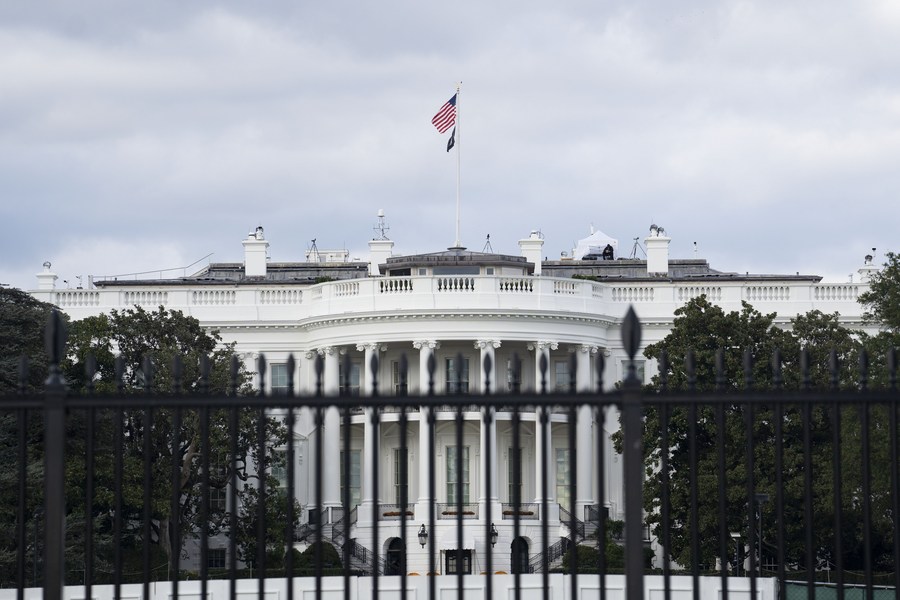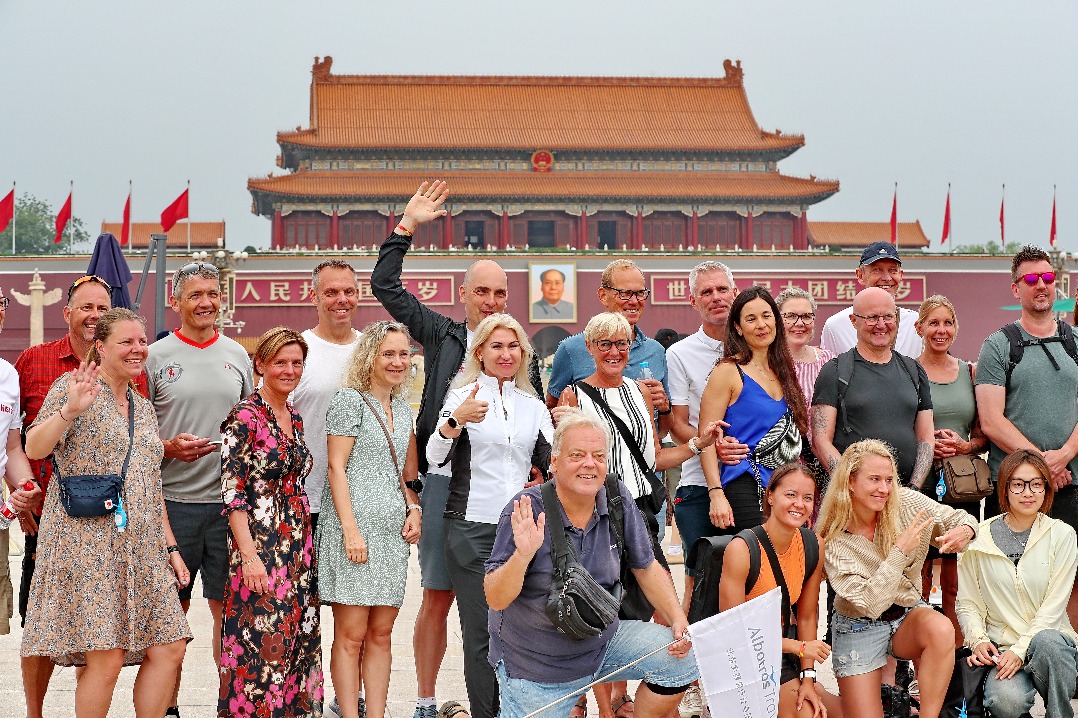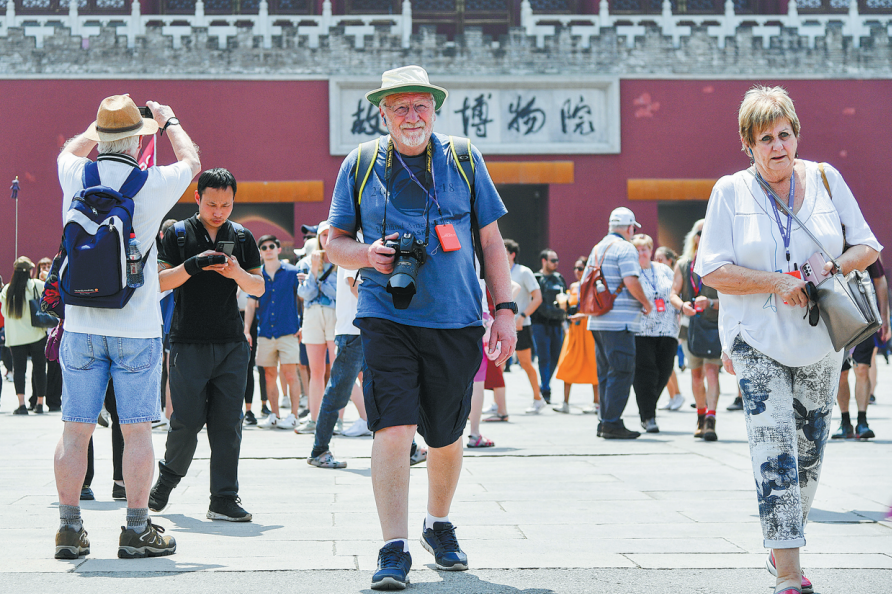Differences among civilizations can lead to benefits instead of clashes


As the red flag of the Soviet Union was lowered over the Kremlin and the tricolor representing Russia was slowly raised, the Cold War, which had been ongoing for decades, ended. Against this background, scholars of international studies put forward various assumptions over the future patterns of world conflicts, such as Francis Fukuyama's the end of human history theory; the tribalism-and-globalism conflict theory; and the return of traditional nation-states rivalries theory.
However, Samuel Huntington, an American scholar of international relations, predicted that future conflicts would be cultural, the clashes along the fault lines among civilizations would become a norm of world conflicts, and minor ones may escalate into regional or even world wars without proper control.
To back his theory, he first redefined what culture is and identified eight major civilizations in the world: Christian, Islamic, Orthodox, Hindu, Chinese, Japanese, Latin, and African civilizations. Then he interpreted why differences among civilizations would lead to conflicts. Again, he predicted that future conflicts would be between the West and the rest, and the clashes between the West and Chinese and Islamic civilizations, in particular, would be inevitable.
Huntington's assumption was hailed by many and is still alive in today's academic circle. While Huntington was ostensibly insightful in his field of research, his view was doomed to reflect a world with a Western mentality. His conflict theory is based on the experience of the Cold War, and his division of world civilizations intentionally or not revealed the strategic needs of the West. For example, Huntington identifying Japanese culture as a unique civilization independent from Chinese civilization was just groundless. The former is obviously a subdivision of Chinese civilization, which is obvious from language, style of architecture, and corporate culture, just to name a few. Even if Japan's political system and laws are completely Westernized, its core culture belongs to the spectrum of Confucianism. Therefore, this classification in essence is to serve both the strategic consideration of the West and deliberately maximize the minor cultural differences of the two Asian neighboring countries.
Decades of conflicts, ranging from the wars in Kosovo to the wars in the Middle East to the present Russia-Ukraine conflict, seemed to have verified his academic insightfulness because the sites of these conflicts were located along the so-called fault lines of civilizations of the West, the Islamic and the Orthodox. Do these conflicts really happen because of the natural hostility between the two civilizations? The fact is that all the wars waged by US-led allies to strengthen their interest in the region have brought about the disgust of Islamic countries with the West. Huntington and his like-minded peers just reversed the cause and effect, stating that it was the hostility of Islamic people to the West that incurred conflict and confrontation. Actually, his theory just served as a script that was faithfully replayed by the West, and his theory was a precise reflection of the attitude of the West toward other civilizations: arrogance, paranoia, ignorance and prejudice.
Huntington's fault lies in that he just sees the negative aspect of differences among civilizations but fails to perceive their positive side. The context that the West has been dominating the world order since the era of great navigation brings an illusion to the elites of the West that its civilization is superior to other civilizations, and therefore, the West should be entitled to the domination. This misperception is well reflected in both how the US copes with its domestic and foreign affairs.
In its foreign policy, the United States is instinctively inclined to divide countries into different circles according to cultural distance. Without doubt, the English-speaking Christian countries naturally entered the inner circle of the United States and became its most important strategic allies. Other non-English European countries fall into the second tier of the circle. And the countries from other civilizations are naturally the target to guard against. Most of these countries belong to Islamic, Indian, and Chinese civilizations. Even some countries within these civilizations, such as Japan and Korea, who have shown a strong inclination and determination for their cultural conversion, are just doomed to be convenient allies of the West and would never be truly accepted, for they are "outsiders." India, who the US flattered as the country with "shared democratic value" with the West, is no exception. Although the US has been using so-called "shared democratic value" as a bait to woo India and make it an important strategic pivot of the US in the Pacific region, the US political elites know well that India is not qualified for a ticket to the Western club.
In dealing with their domestic issues, the white elites are no different from Huntington in mentality. Take their attitude to immigration as an instance. Although immigrants are regarded as essential human resources for the social and economic development of the country, they have never been accepted by the elites from their inner hearts. These elites only see the risks brought by the immigrants from non-West civilization countries to their country and are keen on amplifying racial differences rather than doing the opposite. They label the immigrants with absurd marks according to their skin color, origin, gender, political orientation and so on, and deliberately generate contradictions among them and prevent them from really melting into the broader society. The practice reminds us of the British colonists in India. During the period, the British colonists intentionally transplanted their hierarchical tradition to India, subdivided Indians into various grades and ranks based on their religious belief, wealth, language, community, skin color and caste, and implemented "divide and rule" policy to maintain its despotic rule for more than 200 years by solidifying the differences and creating internal contradictions.
Objectively, Huntington's academic stance resulted from the Western culture, and it is unfair to expect him to view the benefits of cultural differences from Chinese perspectives. Chinese do not negate cultural differences, but they also do not exaggerate the negative factors of them. They, on the contrary, managed to turn the possible negative outcome into positive returns. The answer is in the formation of Chinese civilization. The present strong national cohesion of China is the result of constant contacts, exchanges and integration among ancient Han ethnic group and other ethnic minorities. Through thousands of years of communication, the Han nationality and other ethnic minorities took pains to walk out of the limits of their own cultural cognition, actively learned from each other, absorbed and shared the cultural essence of each other, gradually learned how to respect and deepen their intimateness toward each other, which finally formed a more grand and advanced civilization - Chinese civilization. In the big family of the China, all ethnic groups treat each other as equals and share weal and woe of one another.
From the foreign policy of "seeking common ground while reserving differences, mutual respect, and peaceful coexistence" to the initiative of "building a community with a shared future for mankind" and the China-proposed Belt and Road Initiative, all this wisdom is derived from the immediate experience of Chinese civilization. They are not empty political slogans but the inner voice and historical intelligence of the Chinese, fundamentally being different from the propaganda of "freedom, democracy and equality" touted by the United States.
As a practical and visionary scholar, Huntington had to agree that "the traditional Western-centric mentality was no longer applicable to future world and a multipolar world order would be possibly established. Thus, he suggested that the West learn to treat others on equal footing, respect each other, and resolve their differences through consultation and cooperation." On this point, he is right.
For a peaceful and dynamic world, the West should step out of its own cultural mentality and self-imagined scare to the non-Western civilizations, create and embrace a more rational world order with other non-West civilizations together.
Guo Jiulin is a professor of American studies at Dalian Minzu University. The views don't necessarily reflect those of China Daily.
If you have a specific expertise, or would like to share your thought about our stories, then send us your writings at opinion@chinadaily.com.cn, and comment@chinadaily.com.cn.

































